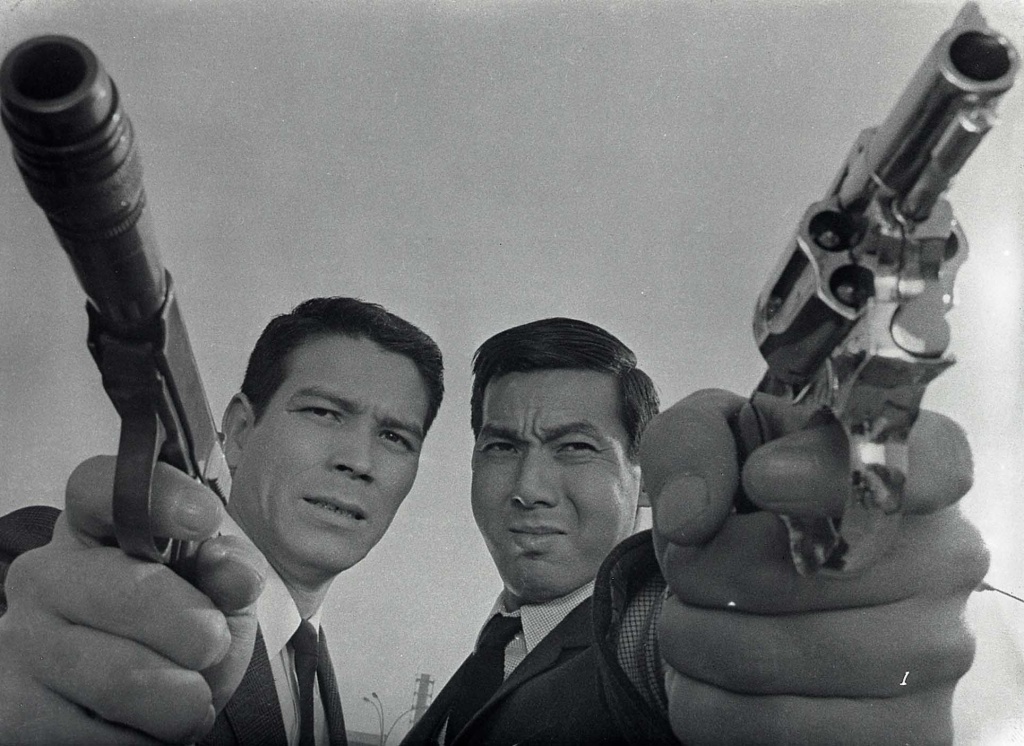
Watching Japanese 1960s crime flicks (particularly those produced by Nikkatsu Corporation) is always an insight into how much Quentin Tarantino has ripped off them off (also Jim Jarmusch when he makes hitman movies, and I tend to think of Jarmusch a bit more just because there’s a certain level of economy shared). Then again, A Colt Is My Passport (1967) opens with Harumi Ibe’s music aping Ennio Morricone’s scores, and the film is influenced itself by the French New Wave and filmmakers like Jean-Pierre Melville as well as Sergio Leone westerns. The layering of these genre influences helps to create something unique, and this film also stands out to me in contrast to the other flicks I’ve seen with the chipmunked-cheeked Joe Shishido in the lead (like Youth Of The Beast or Branded To Kill) as there’s a humanity to this one and a satisfying conclusion that doesn’t go towards darkly comic nihilism. We open with Shishido as a hitman, Shuji, who is taken through the daily routine of a target by his partner, Shun (Jerry Fujio). As in the great tradition of all movies about assassins, the job goes right but the consequences turn bad when the war between two Yakuza gangs result in a corporate merger that leaves Shuji and Shun as expendable collateral. On the run, hiding out in a motel where truckers congregate, they meet a waitress, Mina (Chitose Kobayashi), who has had her own dark past with the mob, and feels a connection with the aloof Shuji. All of this builds to a showdown between Shuji and his enemies, as he demonstrates his loyalty and love for his partner Shun. Directed by Takashi Nomura and based on a novel by Shinji Fujiwara, this clocks in at an efficient 84 minutes and has a clear sense of jazzy noir style, crisp suits and apartment blocks, tempered with a feeling for post-war Japan and survivalist impulses. Across highway tunnels, wharf barges and dirt piles, life and death are metered out between the collective and the individual. As I said before, there’s a greater emotional resonance with Mina’s characterisation, her longing and desperation, and the bond shared between the two male co-workers, and the film also offers a very effective and thrilling climax. There’s even time for a tune from the talented Fujio and a stray guitar. Streamed on the Criterion Channel within their Japanese Noir collection. Recommended.